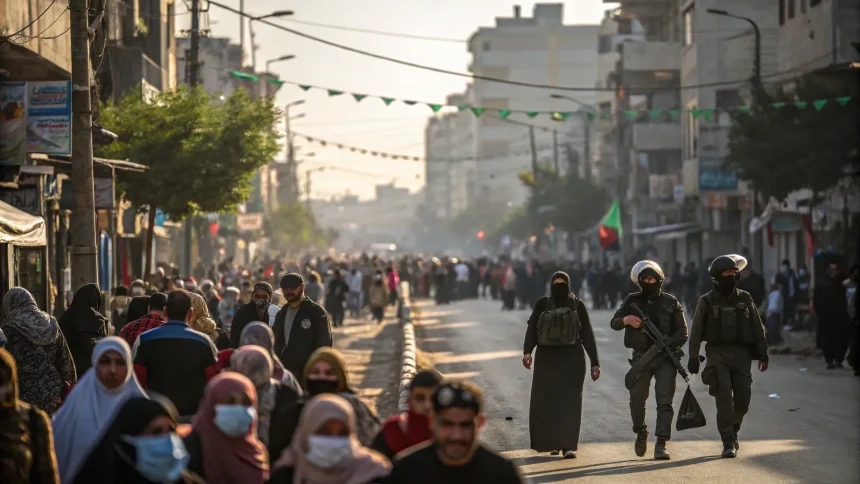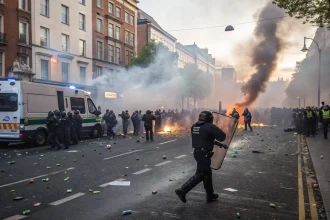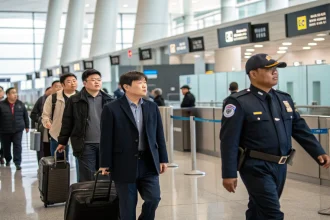Hamas has intensified its grip on Gaza, with the group’s internal security organization calling on residents to report individuals they suspect of collaborating with Israel.
The militant group, which has controlled the Gaza Strip since 2007, appears to be consolidating power amid ongoing tensions with Israel. This latest move signals an effort to root out potential intelligence sources within the Palestinian territory.
The call for identifying “collaborators” raises concerns about potential human rights abuses and summary justice against those accused of working with Israeli authorities.
Internal Security Measures
Hamas’s internal security apparatus issued the directive as part of what appears to be a broader campaign to maintain control over the enclave. The organization specifically used the term “collaborators” – a loaded word in the Palestinian territories that typically refers to those providing intelligence or other assistance to Israel.
Security experts note that such calls often lead to increased surveillance within communities and can create an atmosphere of suspicion among residents. The timing suggests Hamas may be concerned about intelligence leaks or is preparing for potential escalation with Israel.
Previous campaigns against alleged collaborators have resulted in public executions and extrajudicial killings, according to human rights organizations that monitor the region.
Historical Context
The issue of collaboration has deep historical roots in the Israeli-Palestinian conflict. Those accused of working with Israeli intelligence services have faced harsh punishment from Palestinian militant groups.
During previous conflicts, Hamas has conducted swift trials and executions of suspected collaborators. Human rights groups have criticized these proceedings as failing to meet basic standards of due process.
Some key patterns in Hamas’s approach to suspected collaborators include:
- Public accusations and “naming and shaming” campaigns
- Rapid military tribunal proceedings
- Detention without formal charges
- Limited or no access to legal representation
Regional Implications
This development comes at a sensitive time for Gaza, which continues to face severe economic challenges and restricted movement of people and goods. The territory, home to approximately 2 million Palestinians, has been under a blockade imposed by Israel and Egypt since Hamas took control.
Regional analysts suggest that Hamas’s internal crackdown may be related to broader geopolitical developments, including shifting alliances in the Middle East and ongoing efforts at Palestinian reconciliation between Hamas and its rival faction, Fatah.
The move also reflects the ongoing security dilemma facing Hamas as it attempts to govern Gaza while maintaining its resistance stance against Israel. The group must balance its military objectives with the day-to-day governance of a territory facing humanitarian challenges.
International human rights organizations have expressed concern about the potential for abuses stemming from such calls to identify collaborators. Previous campaigns have led to torture, unfair trials, and executions, according to documentation by groups monitoring the situation.
As Hamas strengthens its internal security measures, residents of Gaza face increasing pressure to demonstrate loyalty to the ruling authority while navigating the complex realities of life in the blockaded territory.









